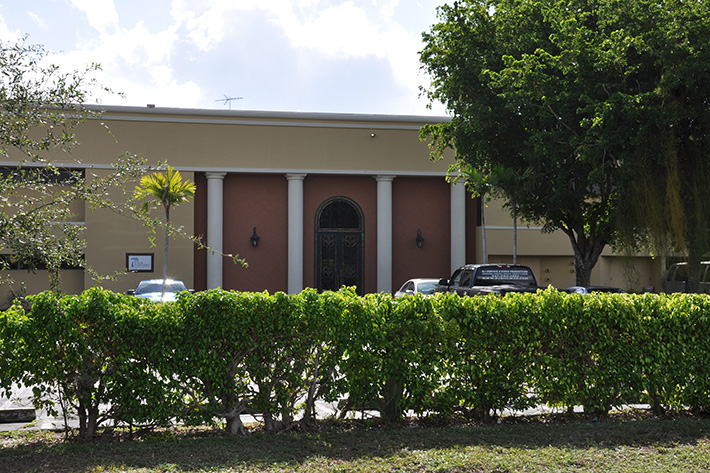The Difference between Prescription Pain Pill Abuse Versus Misuse and When to Consider Treatment
The misuse and abuse of prescription pain pills has reached epidemic proportions in the United States, affecting people from all walks of life. According to the Substance Abuse & Mental Health Services Administration, an estimated 4.3 million Americans engaged in some form of prescription pain pill abuse or misuse in 2014 with as many as 1.9 million meeting the criteria for drug abuse disorder.
While the two terms are often used interchangeably, prescription pain pill abuse versus misuse describes two very different practices. And while these differences do have an impact on the role drug use plays in a person’s life, the risks of abuse and developing addiction remain the same. If you engage in some form of prescription pain pill abuse or misuse, understanding how these drugs work can help you determine whether treatment help is needed.
Prescription Pain Pill Abuse vs Misuse
Prescription pain pills offer fast and effective treatments for conditions involving most any type of pain symptoms. Their pain relieving effects result from changes within the brain’s chemical workings. In effect, these drugs force the release of large amounts of neurotransmitter chemicals.
When taken for extended periods of time, these effects weaken the brain’s chemical producing cells at which point a person must take larger doses to experience the drug’s pain-relieving effects. According to the U. S. Food & Drug Administration, when a person increases his or her dosage amount for “treatment” purposes without a doctor’s ok, he or she is misusing the drug.

Taking more pills than directed in order to treat pain is considered misuse.
Prescription pain pill abuse applies in cases where users seek to experience the “high” effects of the drug and nothing else. Considering how the brain’s tolerance for prescription pain pills tends to increase fairly quickly, people who engage in abusive practices will likely develop a physical dependence and eventual addiction at a much faster rate than someone who misuses prescription pain pills.
Physical Dependence & Addiction Potential
In general, prescription pain pill abuse easily breeds physical dependency in terms of the brain needing the drug’s effects to function normally. Even in cases of misuse, a person can still develop a physical dependence as dosage amounts increase.
Once physical dependence set in, users start to experience withdrawal episodes made up of the following symptoms:
- Irritability
- Depression
- Profuse sweating
- Anxiety
- Fatigue
- Jitteriness
- Tremors
Whether abusing or misusing prescription pain pills, withdrawal episodes work to promote continued drug use, making a person all the more susceptible to a developing addiction. Much like the brain and body require the drug’s effects when physical dependence develops, a person’s psychological well-being becomes dependent on getting and using the drug when addiction takes hold.
Treatment Considerations
Ideally, the best time to get needed treatment help is at the very first sign of a developing physical dependence. In this way, treatment only entails breaking the body’s dependence as opposed to having to overcome both a physical and mental dependence.
If your or someone you know struggles with prescription pain pill abuse or misuse and have more questions about how these drugs work, please feel free to call our toll-free helpline at 888-959-0638 to speak with one of our addictions specialists.

 How to Talk to Your Doctor About Pain Pill Abuse -
It's important to inform your doctor about your concerns regarding your prescription so that they can prevent any potentially dangerous outcomes of pain pill abuse.
How to Talk to Your Doctor About Pain Pill Abuse -
It's important to inform your doctor about your concerns regarding your prescription so that they can prevent any potentially dangerous outcomes of pain pill abuse.  Prescription Drug Abuse Signs & Symptoms -
As the rate of addiction to prescription pills increases nation-wide, knowing the signs and symptoms of prescription drug abuse becomes increasingly important.
Prescription Drug Abuse Signs & Symptoms -
As the rate of addiction to prescription pills increases nation-wide, knowing the signs and symptoms of prescription drug abuse becomes increasingly important.  Signs of an Out-of-Control Opium Abuse Problem -
Using opium-based drugs in ways other than prescribed often leads to dependency, and eventually addiction.
Signs of an Out-of-Control Opium Abuse Problem -
Using opium-based drugs in ways other than prescribed often leads to dependency, and eventually addiction.  Dangers of Vicodin Abuse -
In prescribed dosage, Vicodin is relatively safe. With Vicodin abuse, however, individuals will see problems develop with their central nervous system, and particularly with dopamine in the brain.
Dangers of Vicodin Abuse -
In prescribed dosage, Vicodin is relatively safe. With Vicodin abuse, however, individuals will see problems develop with their central nervous system, and particularly with dopamine in the brain.  I Caught My Friend Snorting Suboxone to Get High; Now What Should I do? -
If someone you care about is snorting Suboxone, it's imperative that you help them seek treatment immediately.
I Caught My Friend Snorting Suboxone to Get High; Now What Should I do? -
If someone you care about is snorting Suboxone, it's imperative that you help them seek treatment immediately.